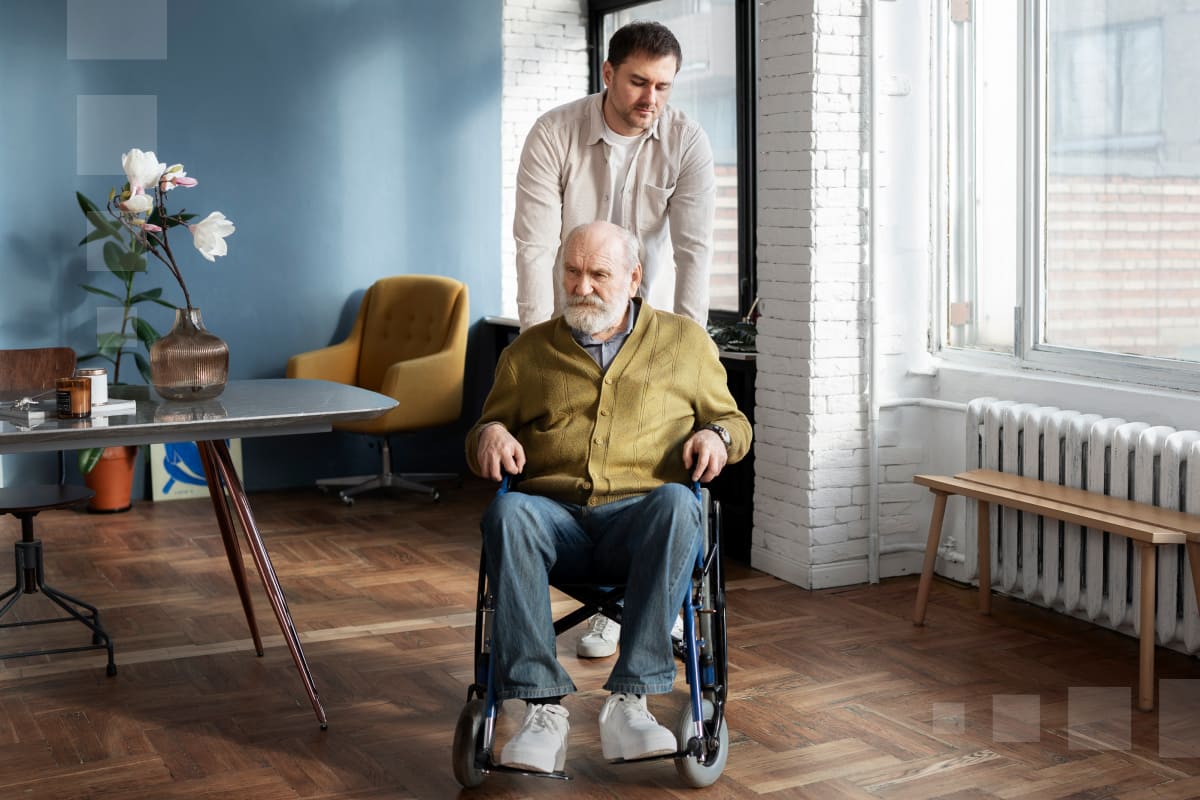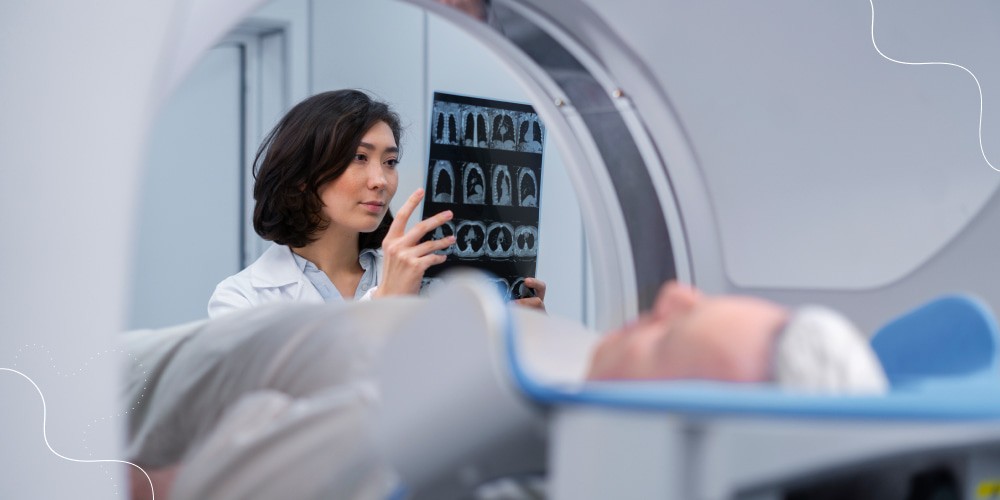Take Action in the Fight Against Alzheimer’s Disease
Alzheimer’s disease is a progressive neurologic disorder that causes the brain to shrink (atrophy) and brain cells to die. Alzheimer’s disease is the most common cause of dementia — a continuous decline in thinking, behavioral and social skills that affects a person’s ability to function independently.

Frequently Asked Questions
Alzheimer’s disease is the most common type of dementia.
It is a progressive disease beginning with mild memory loss and possibly leading to loss of the ability to carry on a conversation and respond to the environment.
Alzheimer’s disease involves parts of the brain that control thought, memory, and language.
It can seriously affect a person’s ability to carry out daily activities.
In 2020, as many as 5.8 million Americans were living with Alzheimer’s disease.
Younger people may get Alzheimer’s disease, but it is less common.
The number of people living with the disease doubles every 5 years beyond age 65.
This number is projected to nearly triple to 14 million people by 2060.
Symptoms of the disease can first appear after age 60, and the risk increases with age.
Medical management can improve quality of life for individuals living with Alzheimer’s disease and for their caregivers. There is currently no known cure for Alzheimer’s disease. Treatment addresses several areas:
Helping people maintain brain health.
Managing behavioral symptoms.
Slowing or delaying symptoms of the disease.
The science on risk reduction is quickly evolving, and major breakthroughs are within reach. For example, there is growing evidence that people who adopt healthy lifestyle habits — like regular exercise and blood pressure management — can lower their risk of dementia. There is growing scientific evidence that healthy behaviors, which have been shown to prevent cancer, diabetes, and heart disease, may also reduce risk for subjective cognitive decline.

Common symptoms:
Alzheimer’s disease is a progressive condition, which means the symptoms develop gradually over many years and eventually become more severe. It affects multiple brain functions.
The first sign of Alzheimer’s disease is usually minor memory problems.
As the condition develops, memory problems become more severe and further symptoms can develop, such as:
- confusion, disorientation and getting lost in familiar places
- difficulty planning or making decisions
- problems with speech and language
- problems moving around without assistance or performing self-care tasks
- personality changes, such as becoming aggressive, demanding and suspicious of others
- hallucinations (seeing or hearing things that are not there) and delusions (believing things that are untrue)
- low mood or anxiety
Message Us
Alzheimer's and dementia

Getting a diagnosis
As the symptoms of Alzheimer’s disease progress slowly, it can be difficult to recognise that there’s a problem. Many people feel that memory problems are simply a part of getting older.
Also, the disease process itself may (but not always) prevent people recognising changes in their memory. But Alzheimer’s disease is not a “normal” part of the ageing process.
An accurate and timely diagnosis of Alzheimer’s disease can give you the best chance to prepare and plan for the future, as well as receive any treatment or support that may help.
If you’re worried about your memory or think you may have dementia, it’s a good idea to see a GP.
If possible, someone who knows you well should be with you as they can help describe any changes or problems they have noticed.
If you’re worried about someone else, encourage them to make an appointment and perhaps suggest that you go along with them.
There’s no single test that can be used to diagnose Alzheimer’s disease. And it’s important to remember that memory problems do not necessarily mean you have Alzheimer’s disease.
A GP will ask questions about any problems you’re experiencing and may do some tests to rule out other conditions.
If Alzheimer’s disease is suspected, you may be referred to a specialist service to:
- assess your symptoms in more detail
- organise further testing, such as brain scans if necessary
- create a treatment and care plan
How Alzheimer's disease is treated
There’s currently no cure for Alzheimer’s disease, but medicines are available that can help relieve some of the symptoms.
Various other types of support are also available to help people with Alzheimer’s live as independently as possible, such as making changes to your home environment so it’s easier to move around and remember daily tasks.
Psychological treatments such as cognitive stimulation therapy may also be offered to help support your memory, problem solving skills and language ability.

Outlook
People with Alzheimer’s disease can live for several years after they start to develop symptoms. But this can vary considerably from person to person.
Alzheimer’s disease is a life-limiting illness, although many people diagnosed with the condition will die from another cause.
As Alzheimer’s disease is a progressive neurological condition, it can cause problems with swallowing.
This can lead to aspiration (food being inhaled into the lungs), which can cause frequent chest infections.
It’s also common for people with Alzheimer’s disease to eventually have difficulty eating and have a reduced appetite.
There’s increasing awareness that people with Alzheimer’s disease need palliative care.
This includes support for families, as well as the person with Alzheimer’s.
Living with Alzheimer's and dementia
Can Alzheimer's disease be prevented?
As the exact cause of Alzheimer’s disease is not clear, there’s no known way to prevent the condition.
But there are things you can do that may reduce your risk or delay the onset of dementia, such as:
- stopping smoking and cutting down on alcohol
- eating a healthy, balanced diet and maintaining a healthy weight
- staying physically fit and mentally active
These measures have other health benefits, such as lowering your risk of cardiovascular disease and improving your overall mental health.

Dementia research
There are dozens of dementia research projects going on around the world, many of which are based in the UK.
If you have a diagnosis of dementia or are worried about memory problems, you can help scientists better understand the disease by taking part in research.
If you’re a carer for someone with dementia, you can also take part in research.

When to see a doctor
A number of conditions, including treatable conditions, can result in memory loss or other dementia symptoms. If you are concerned about your memory or other thinking skills, talk to your doctor for a thorough assessment and diagnosis.
If you are concerned about thinking skills you observe in a family member or friend, talk about your concerns and ask about going together to a doctor’s appointment.




